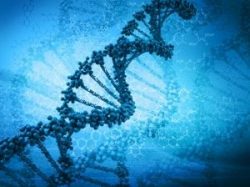Columbus, OH — Genetic abnormalities are a reality for most species and the understanding of these conditions continues to evolve with scientific advancements.
In order to make every effort within the Standardbred breed to identify animals that carry these genetic factors, the U.S. Trotting Association announced in Dec. 2020 that it has joined forces with the Veterinary Genetics Laboratory at the University of California Davis to assist in a research study entitled, “Genetic Investigation of Traits of Economic Importance in Horses.”

“The USTA Board of Directors realize that the need for its members to know more about their horse’s lineage is extremely important,” said USTA COO and Director of Registry TC Lane in making the announcement. “Determining which horses may lead to potentially negative genetic conditions are priceless to breeders as well as buyers. At the end of the day, this scientific information will benefit the overall breed itself, and that’s what is most important.”
This study is being conducted to collect and utilize DNA samples to identify genetic mechanism of traits of economic importance in the horse. The overarching goal of this project is to empower breeders with tools to make more informed mating decisions as well as contribute to the knowledge base of equine biology.
In conjunction with UC Davis, the USTA has developed a protocol for reporting any genetic abnormalities that can be studied utilizing the new scientific tools of genomics to investigate the possible discovery of mutations currently happening or that may occur in the future.
To assist in the study, the USTA requests that breeders and owners submit samples for DNA testing for still born foals or those with apparent abnormalities at or after birth.
To participate in the study, a submission form, consent form, blood or hair samples and photos of the foal should be submitted to the USTA. To obtain or get further information on the forms or a DNA test kit, contact Gabby Fleming from USTA Member Services at gabby.fleming@ustrotting.com or by calling toll free 877.800.USTA (8782).
The forms are also available online at this link.
Blood samples are preferred; however, hair samples may also be submitted. For hair samples, 20-30 hairs with roots attached should be pulled from the mane or tail (no cutting of hair) and placed in a Ziploc bag.
Samples and photos with identification should be sent to:
United States Trotting Association
6130 S. Sunbury Rd.
Westerville, OH 43081
Attention: Gabby Fleming
All samples will be sent to UC Davis Veterinary Genetics Lab for genetic testing.
Participation in the study is voluntary and any participant has the right to withdraw from the study at any time. There is no financial obligation on the part of the participant.
Any data collected as part of participation in this study will remain confidential, but any of this data may be used for scientific purposes including publication of results without identifying a particular animal, owner or breeder.
The USTA will share any results from this study that are made public or published.
